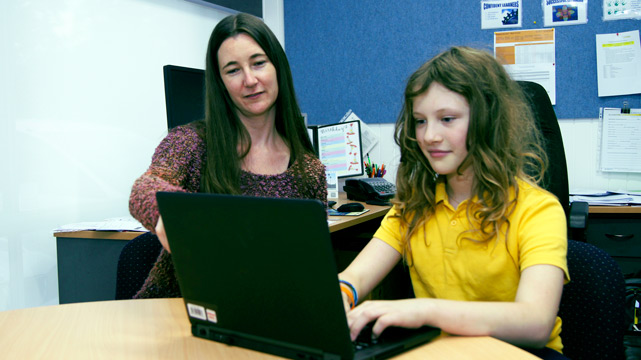A team of researchers passionate about the social and emotional wellbeing of children have been refining a survey questionnaire that allows schools to better support their students in this important area.
The Kids Research Institute Australia Senior Research Fellow Tess Gregory and Head of Child Health Development and Education Sally Brinkman feel strongly that whilst schools have long played a major role in building the wellbeing of students, the outcome data available to school systems focus too much on the academic achievement of children, at the expense of supporting students in other areas of life.
Based in South Australia at the Fraser Mustard Centre, the pair have worked with the education department to rollout a population level ‘census’ to nearly every public school. This has enabled them to measure the wellbeing of children so that the system responsible for educating them can also better support their wellbeing.
The survey of wellbeing and student engagement looks at happiness, optimism, life satisfaction, perseverance, emotion regulation, sadness, worries, connectedness to adults and peers, engagement, academic self-concept and bullying.
It provides invaluable information to the South Australian Department for Education and Child Development and its schools to put in place policies and programs targeting the particular needs of their student population.
“We are really excited to see the systematic measurement of student wellbeing within the whole education system,” Dr Gregory said.
“While some schools measure these things, until it becomes a systematic collection where education systems can look at this data alongside their attendance and academic achievement data, student wellbeing is not going to be elevated to the same level of importance as literacy and numeracy.”

It seems teachers and parents are realising the benefits of better knowing how their children are feeling, with an impressive 90 per cent of all South Australian government schools now volunteering to take part in the annual survey. Each school then receives a report on their students’ results, and the department is able to use internal data linkage systems to explore the association between child development, student wellbeing and engagement, academic achievement, and school attendance.
For instance, early research showed a student’s ability to persevere was essential for later academic achievement. The department is now exploring programs to develop perseverance in students to see if helping children in that area would have an impact down the track.
“In a lot of places schools look at how individual students are going,” Dr Gregory said. “The thing that is different about this collection is that it focuses on the wellbeing of the whole class and school rather than the individual. It’s designed to take a population health approach to thinking about wellbeing, social and emotional skills.”
Dr Gregory and Dr Brinkman are now focused on improving how the survey is working from a psychometric perspective so that it can better differentiate between children.
“We need to ensure that the policy decisions made based on this data are not impacted by any problems with the different scales or how the instrument is working,” Dr Gregory said.
She said the close collaboration between the Department and The Kids Research Institute Australia through the Fraser Mustard Centre was essential to the success of this work. The strong engagement by the department ensured the data was not left sitting on a shelf somewhere. Instead, the results were being used to benefit students across the State. Other states were also looking at getting involved.
“As academics, we could never have done research quite like this independently, and the department would not have had access to experts to do the underlying psychometric work that we have done,” Dr Gregory said of the department’s policymakers.
“By working together we have ended up with a much better instrument that’s much more rigorous, as well as very high engagement by schools and students.”
What’s next?
- When children start school the Australian Early Development Census measures their social, emotional and physical health, along with their language and communication skills. The researchers are preparing to look at how school readiness relate to social and emotional wellbeing in the middle school years.
- Is wellbeing determined early and therefore intervention needs to happen sooner? Or are the intervening years important and students need more support later?
